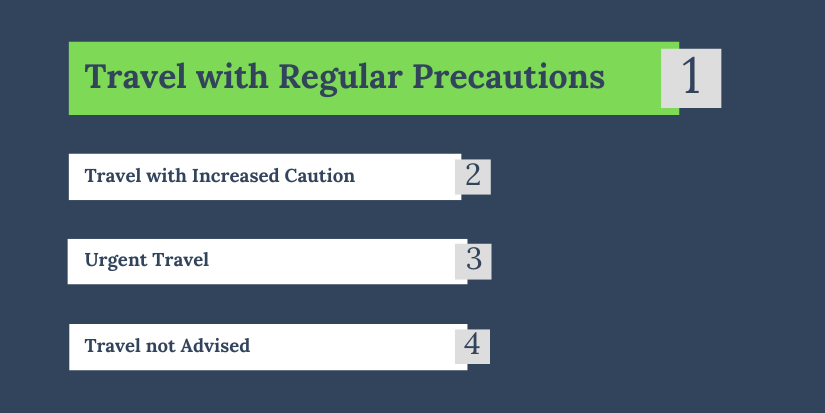
VISA REGIME
For holders of national passports and other travel documents: A visa is not required for stays of up to 90 days in a 180-day period
For holders of diplomatic and official passports: A visa is not required for stays of up to 90 days in a 180-day period
Note: Visa is not required for holders of an emergency travel document in transit
ENTERING AND LEAVING THE COUNTRY
From 19 July 2013, to enter any EU member state, Serbian citizens are required to have a travel document issued in the last ten years, which must be valid minimum three months after the planned date of departure from the territory of an EU member state. Travellers who do not meet these criteria will be returned from the border.
Serbian citizens holding biometric passports do not need a visa for stays up to 90 days in any six-month period.
Visa is obtained at the Dutch Embassy in Belgrade.
Serbian citizens holding biometric passports are no longer required to have health insurance, however, it is recommended to have one. Also, it is recommended that travellers going for a private visit have an invitation letter with a travel plan, and travellers going for a tourist visit to have a hotel booking and a return ticket. The Dutch border police have the discretionary authority to deny entry to travellers who meet the entry requirements, if they estimate that the traveller will stay in the Netherlands illegally, work illegally, or engage in illicit activities. The border police will ask almost everyone to present evidence of the purpose of their visit and evidence of return. Anyone travelling to or leaving the Netherlands must declare funds if they exceed the amount of 10,000 euros. There is no obligation to have a minimum amount of money per day of the stay.
SOCIAL SECURITY AGREEMENT
The Convention on Social Insurance concluded between the SFRY and the Kingdom of the Netherlands (came into force on 1 April 1979) applies in the Netherlands to the legislation related to sickness and maternity benefits, incapacity for work benefits, old-age benefits, benefits for surviving family members, unemployment benefits, family benefits, and special pension regimes for miners. The Convention applies to all statutes and regulations which amended or will amend the legislation listed in the Convention.
However, the Convention will not apply to the laws or regulations covering a new branch of social insurance, unless an agreement to that effect is reached. It also does not apply to the laws or regulations extending existing systems to new categories of beneficiaries, if the government of the relevant Contracting Party opposes, and notifies the Government of the other Contracting Party in writing about this within three months from the date of the publication of the relevant laws and regulations. The Convention does not apply to social assistance or to special insurance schemes relating to officials or equivalent staff.
USEFUL INFORMATION
HEALTH SITUATION — The health situation is good. Travel health insurance is recommended, especially since the prices of health services in the Netherlands are very high. For emergency care, it is best to go directly to the emergency department services of a nearby hospital.
SECURITY SITUATION — The Netherlands is generally a safe country, where the biggest problem is petty crime and pickpocketing, especially in larger cities like Amsterdam. A high level of risk of terrorist attacks was declared at the state level, as a result of the presence of Dutch soldiers in Afghanistan and the country’s support to military intervention in Iraq. In case of emergency, travellers should contact the police at telephone number 112. For all other non-urgent matters, the general telephone number of the Dutch police to call is 0900 8844.
TRANSPORT — The Amsterdam Airport (Schiphol) is one of the busiest airports in Europe. Air Serbia flies from Belgrade to Schiphol and back. Hungarian airline company WIZZ AIR also has direct flights from/to the Belgrade airport to/from the airport in Eindhoven.
Railway traffic is very developed. Almost all cities in the Netherlands are connected by railway.
The motorway network is extremely developed and connects almost all major places in the Netherlands. Intercity bus traffic is almost non-existent. The general speed limit is 100 km per hour. However, despite the highly developed road network, motorway traffic jams are very frequent.
A large number of taxi carriers operate in the Netherlands. These vehicles are usually not marked with standard taxi signs. They differ from other vehicles solely by the colour of their number/licence plates ― taxi service vehicles have blue plates, whereas other vehicles have yellow.
Public transport by bus, tram and metro operates very well in almost all major cities. What is characteristic for almost all the cities in the Netherlands is the introduction of the OV-chipcard system in 2011, i.e. unique electronic tickets which may be purchased in stores and at train stations and which may be used in almost all the places in the Netherlands for public transport services.
Citizens of the Republic of Serbia can operate motor vehicles with the Serbian driver's licence, and, at the same time, have an international driver's licence during their tourist stay in the Netherlands. The Republic of Serbia and the Netherlands have not concluded a Memorandum on mutual recognition and replacement of driver's licences.
OTHER INFORMATION — The currency in the Netherlands is euro. Non-cash payments are very common, and ATMs are widespread. Credit and debit cards issued in the Republic of Serbia (Maestro, Visa, Mastercard, etc.) are accepted in the Netherlands.
It is forbidden to produce, possess, sell, import and export drugs. However, cannabis can be bought and consumed in specially designated places for sale (coffee shops), whereas consumption of drugs on the street or in other public places is prohibited.
Contact information
For consular assistance and protection while in the Netherlands, please contact the Embassy of the Republic of Serbia in The Hague, at the following telephone number: (00 31) 070 36 36 800, or e-mail: srb.emb.netherlands@mfa.rs
